
An Unforgettable Lineup of Memory Experts!
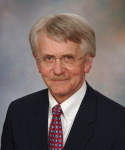 Ronald Petersen, M.D., Ph.D., Opening Keynote Speaker
Ronald Petersen, M.D., Ph.D., Opening Keynote Speaker
How Early Can We Diagnose Alzheimer’s Disease and With What? (1CE)
If you want to learn about mild cognitive impairment (MCI), why not learn from the person who developed the concept and coined the term. This original workshop will offer an unparalleled opportunity to acquire a deeper understanding of MCI from Dr. Peterson, who introduced the concept of MCI with colleagues in 1999 in a seminal publication in Archives of Neurology. In addition, the workshop will address neuropsychological evaluation of Alzheimer’s Disease in the era of biomarkers, with specific reference to its diagnostic role regarding both preclinical and clinical stages of AD.
Dr. Peterson is the Cora Kanow Professor of Alzheimer’s Disease Research and Director of the Mayo Alzheimer’s Disease Research Center. He was recognized with the 2004 MetLife Award for Medical Research in Alzheimer’s Disease and the 2005 Potamkin Prize for Research in Pick’s, Alzheimer’s and Related Disorders by the American Academy of Neurology.
Click here for more information on Dr. Petersen.
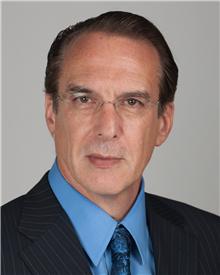 Jeffrey Cummings, M.D., Closing Keynote Speaker
Jeffrey Cummings, M.D., Closing Keynote Speaker
Part 1: Alzheimer's Disease: Biology and Emerging Therapeutics
Part 2: Alzheimer's Disease: Trial Design, Clinical Assessment, and Biomarkers (3CE)
This extended Closing Keynote Address will offer a unique opportunity to learn from an internationally recognized expert in the diagnosis and treatment Alzheimer’s Disease. Dr. Cummings will review the pathophysiology of Alzheimer’s Disease, which initially presents as abnormal beta amyloid protein processing. This is followed by abnormalities of tau protein aggregation, inflammation, oxidation, mitochondrial dysfunction, cell death and neurotransmitter deficits. Biomarkers of these processes provide evidence that the AD process is present in the brain for up to 25 years prior to the onset of symptoms. New therapies targeting amyloid, tau, glucose metabolism, mitochondrial function, inflammation, and oxidation are being assessed in clinical trails. These types of trials in Alzheimer’s disease are larger and of longer duration that trials for symptomatic drugs. The utility of biomarker outcomes and the challenges of conducting clinical trials will be presented.
Dr. Cummings is Director of the Cleveland Clinic Lou Ruvo Center for Brain Health and Camille and Larry Ruvo Chair of the Neurological Institute of Cleveland Clinic. Dr. Cummings served as director of the NIA-funded Alzheimer’s Disease Center (ADCS) from 1989-2010. He has been the principle investigator of numerous clinical trials and has served on the NIA ADCS steering committee and the NINDS Net-PD committee to find treatments for Parkinson’s disease. Dr. Cummings has received numerous awards including the Henderson Award of the American Geriatrics Society (2006), the Research Award of the John Douglas French Alzheimer’s Research Foundation (2008), the Ronald and Nancy Reagan Research Award of the national Alzheimer’s Association (2008), the Rockstar of Science Campaign, and the Distinguished Scientist Award from the American Association of Geriatric Psychiatry.
Click here for more information on Dr. Cummings.
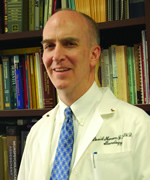 Daniel Marson, J.D., Ph.D., 2013 NAN Presidential Address
Daniel Marson, J.D., Ph.D., 2013 NAN Presidential Address
Neuropsychological Assessment of Financial Capacity in an Aging Society
Dr. Marson will address the substantial and growing issue of financial capacity in our aging society, and the important assessment role of neuropsychology. As a result both of normal cognitive aging and cognitive disorders of aging, older adults in our society experience declining financial skills and judgment that place them at risk for both poor financial decision-making and exploitation by others. The address will highlight the financial and public policy implications of this issue, describe key concepts informing the topic, summarize current research findings, and discuss the important role of neuropsychology in assessing and forming judgments about the financial capacity of older adults.
Dr. Marson is a Professor with tenure in the Department of Neurology at the University of Alabama at Birmingham and directs the Division of Neuropsychology and Alzheimer’s Disease Center. He is currently investigating functional change in patients with MCI, early financial declines in cognitively normal older adults, and medical decision-making in TBI patients.
Click here for more information on Dr. Marson.
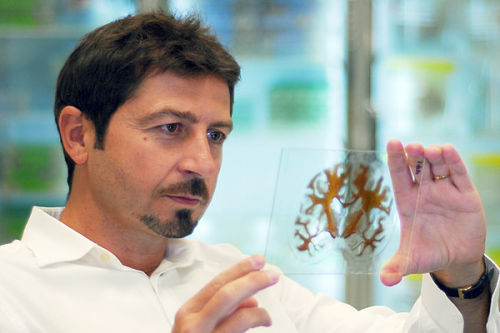 Jacopo Annese, Ph.D., Featured CE Workshop
Jacopo Annese, Ph.D., Featured CE Workshop
Brains in the ‘Cloud’: The Amnesic Patients H.M., E.P. and the Digital Brain Library (2CE)
A truly unique opportunity! Dr. Annese will review the history of Project H.M., an unprecedented undertaking with the stated goal of providing a window into the brain of the man who contributed to establishing the scientific study of memory. Dr. Annese is at the forefront of promoting technology that can create permanent publicly-accessible digital archives for neuroimaging data that can support remote collaboration, future comparisons, as well as retrospective studies, as exemplified by the databases created for amnesic patients H.M. and E.P. The brains of these patients are immortalized in the Digital Brain Library. The Library also leverages on a registry of members who participate regularly in MRI exams and a battery of behavioral and attitudinal tests. Phenotyping at the morphological and neuropsychological level is complemented by the qualitative traits, derived from personal and biographical interviews. Project participants also consent to the postmortem preservation of their brains; these are scanned and sliced into thousands of sections, providing a rich normative context for the study of patients with rare neurological lesions and associated behavioral profiles.
Dr. Annese is the director of The Brain Observatory at U.C. San Diego, a member of the Dana Alliance for Brain Initiatives, which organizes events nation-wide to promote public awareness on the brain and neuroscience. The DBL Project was featured as the world’s most innovative brain bank by the Financial Times (December 2011). Included in the brain bank are renowned scientists, artists and some of the most famous cases in medicine, such as the amnesic patient H.M. Dr. Annese’s projects have been featured by highly reputable broadcasting and publishing media, including: PBS NOVA, National Geographic, BBC, Discovery Channel, The New York Times, Bloomberg News, Financial Times, Esquire Magazine, and Discover Magazine. He was twice nominated for the Science Educator Award (Society for Neuroscience), the 2010 AAAS Early Career Award for Public Engagement with Science, and he recently spoke at TEDx Event in San Diego (October 2012).
Click here for more information on Dr. Annese.
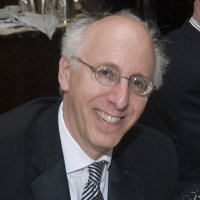 Yaakov Stern, Ph.D.
Yaakov Stern, Ph.D.
Cognitive Reserve: From Theory to Intervention (3CE)
Dr. Stern is an internationally prominent researcher and leader in the fields of cognitive reserve, non-pharmacologic interventions to improve cognition in normal aging, and Alzheimer’s Disease. He has made seminal theoretical and empirical contributions to our understanding of the concept of cognitive reserve. This course will examine multiple aspects of cognitive reserve, including: underlying theory, epidemiological evidence, and neural substrates. Implications for clinical practice and intervention will be discussed.
Click here for more information on Dr. Stern.
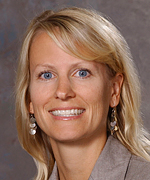
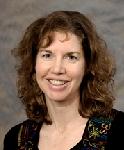 Sarah Tomaszewski-Farias, Ph.D. and Maureen Schmitter-Edgecombe, Ph.D.
Sarah Tomaszewski-Farias, Ph.D. and Maureen Schmitter-Edgecombe, Ph.D.
Everyday Functioning in Older Adults (3CE)
This workshop examines clinical and research methodologies used to measure how disability develops and functional abilities decline in older adults. Cognitive and non-cognitive influences on everyday capacity, and the progressive loss of function across the spectrum of typical aging, mild cognitive impairment (MCI), and dementia will be discussed. Finally, practical interventions to optimize functional capacity will be introduced.
Click here for more information on Dr. Tomaszewski-Farias.
Click here for more information on Dr. Schmitter-Edgecombe.